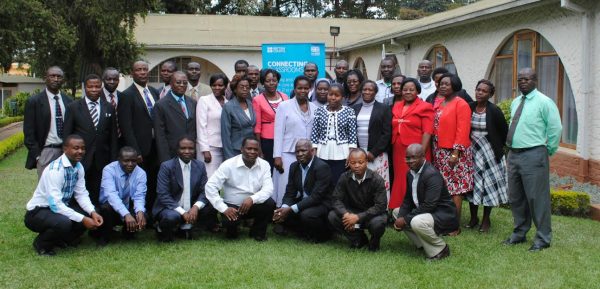África/Malawi/21 Agosto 2016/Fuente y Autor:nyasatimes
Resumen: Un grupo de 74 líderes de las escuelas de la Región Central (Lilongwe y sus alrededores) han elogiado Conexión Programa Aulas del Consejo Británico para poner un tope a conducir de manera más efectiva y ser agentes de cambio en sus escuelas para la entrega de una educación de calidad que equipa a los jóvenes a ser plenamente preparados para la vida y el trabajo en una economía global.
A group of 74 school leaders from the Central Region (Lilongwe and surrounding areas) have praised British Council’s Connecting Classrooms Programme for jolting them to lead more effectively and be change-agents in their schools for delivery of quality education that equips young people to be fully prepared for life and work in a global economy.
Connecting Classrooms aims to build the capacity of teachers, head teachers and policy makers to support them to integrate a range of core skills into the curriculum, therefore improving learning outcomes for young people.
In a workshop held recently, in Lilongwe, the School Leaders were introduced to the Core Skills content and considered how they could best enable their staff to embed this in the teaching practices; and for their own professional development, additional leadership modules, namely, core skills for leaders, leading and effective teaching, and managing change.
Mphatso Light, a Deputy Head teacher at Kabwabwa Community Day Secondary School, said she had benefitted a lot from the programme because it reinforced some concepts learnt in college and introduced totally new but relevant topics for a School Leader to support their teachers and learners through the myriad daily challenges faced.
«As someone who became deputy head teacher without training, this has been an eye opener. We learnt leadership styles which I wasn’t familiar with; of course we might have learnt some of it in college, but now they were clearer. It has been refreshing and awakening.
«The digital component that I learnt will also benefit the students who need to be knowledgeable on computers in this day and age and I found the subject of deep learning, where we have learnt about
questioning skills and other learning methods, quite helpful for us to produce students who are not relying on memorising and regurgitating concepts,» said Light.
Another participant at the workshop, Dickens Mbewa, Head teacher at Mkomachi CDSS said the programme was enriching for exposing them to some new concepts and singled out change management lessons as one area which Connecting Classrooms was adding value in teachers. He
said teachers face challenges to implement some changes in schools.
«We as managers are there for change and need to embrace it, and can now go back and implement something we thought was against school norms easily,» said Mbewa.
Commenting on the workshop, the director for British Council in Malawi, Reena Johl, said the workshop was the first in a series of workshops specifically for School leaders which aims to enhance their own leadership skills, a critical success factor for improving quality of education and the experience of learners.
«We know that implementing change in any school needs careful handling. This will equip head teachers with the skills and theories they need to handle any barriers and resistance and so shape a vision that inspires change. It will also enable school leaders to understand their role in improving and sustaining the quality of teaching and learning and how they can influence teaching and learning
in their schools. With this offer we are responding directly to the request of the Ministry of Education, Science and Technology who were keen to see this alongside the introduction of the revised curriculum in Secondary schools,» said Johl.
Connecting Classrooms is the British Council’s large scale global product for schools, which provides continuous professional development opportunities for teachers and school leaders, and supports partnerships between UK and Malawian schools to ensure sharing of knowledge and approaches to effectively embed the teaching of six core skills across the curriculum.
The programme is funded to the value of £34 million (£17 million by the Department for International Development and £17 million by the British Council). The programme, running from 2015-2018, will build the capacity of 45,000 teachers and 12,000 school leaders worldwide to support them to integrate a range of core skills into the curriculum.
Fuente de la noticia: http://www.nyasatimes.com/lilongwe-school-leaders-hail-british-councils-connecting-classrooms-programme/
Fuente de la imagen: http://www.nyasatimes.com/wp-content/uploads/Lilongwe-school-leaders-600×289.jpg









 Users Today : 35
Users Today : 35 Total Users : 35460298
Total Users : 35460298 Views Today : 49
Views Today : 49 Total views : 3419017
Total views : 3419017